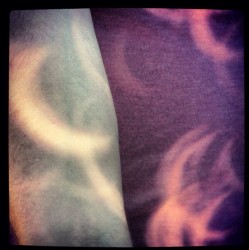In the Monty Python movie “Life of Brian”, Jesus is heard from a distance saying, “Blessed are the peacemakers.” People on the periphery of the crowd mangle Jesus' words. “What did he say?”
“I think it was, ‘Blessed are the cheese makers’”.
"What’s so special about the cheese makers?”
“Well, it’s not meant to be taken literally. It refers to any manufacturer of dairy products.”
Sounds like a theological conference where wisdom teachings are readily parsed into meaninglessness. What was Jesus really up to? Was he merely saying, "Cheer up. It gets better, if not in this life, then the next"?
I believe Jesus was inviting us into a series of paradoxes:
- Deep within our lives we already possess what we have been seeking.
- What we avoid and resist contains a seed of life that can blossom into what we yearn for most.
- Buried within the last place we'd think of looking (grief, lack, a hunger to make the world fairer, being opposed when taking a stand for a good cause) is where we find that we already have all we truly need.
I've tried my hand at crafting a new translation of Jesus' words from Matthew 5:1-12. They are often called "The Beatitudes", which literally means blessed, happy or fortunate. I prefer the word "grateful".
Look through the list below and see which human experience most resonates with your life now. Then lean into it. What is the yearning or human need nestled at its core? How might the fulfillment of that need already be present in your life? (If the term "God" does not work for you, try substituting another term like "Life" or "Universal Love" into the sayings below.)
When Jesus saw the crowds, he went up a mountain. When he had sat down, his disciples came to him. He opened his mouth and began to teach them saying:
Grateful are those who don’t put on spiritual airs, for it’s much easier to get close to God when one’s ego is not in the way.
Grateful are those who have the courage to mourn, for in the epicenter of their grief they encounter a love that comforts them.
Grateful are those who don't act like the world revolves around them, for the whole earth becomes their next of kin.
Grateful are those who long and hunger for fairness, for their bellies are full of grace, which alone will satisfy.
Grateful are those who risk compassion, for their kindness will return to them many times over.
Grateful are those whose hearts have been scrubbed clean of narrow self-interest, for they see God everywhere.
Grateful are those who do the hard work of making peace, for they find the world is full of their brothers and sisters, all children of God.
Grateful are those who are oppressed for doing the right thing, for they feel a connection to God seldom experienced this side of heaven.
Be grateful even when you are insulted, oppressed, disrespected, and lied about because you have aligned yourself with me. Celebrate! Shout for joy! Everyone who takes a stand for something or Someone bigger than themselves receives the same treatment, but they also receive the same reward: the secret of eternal life.
